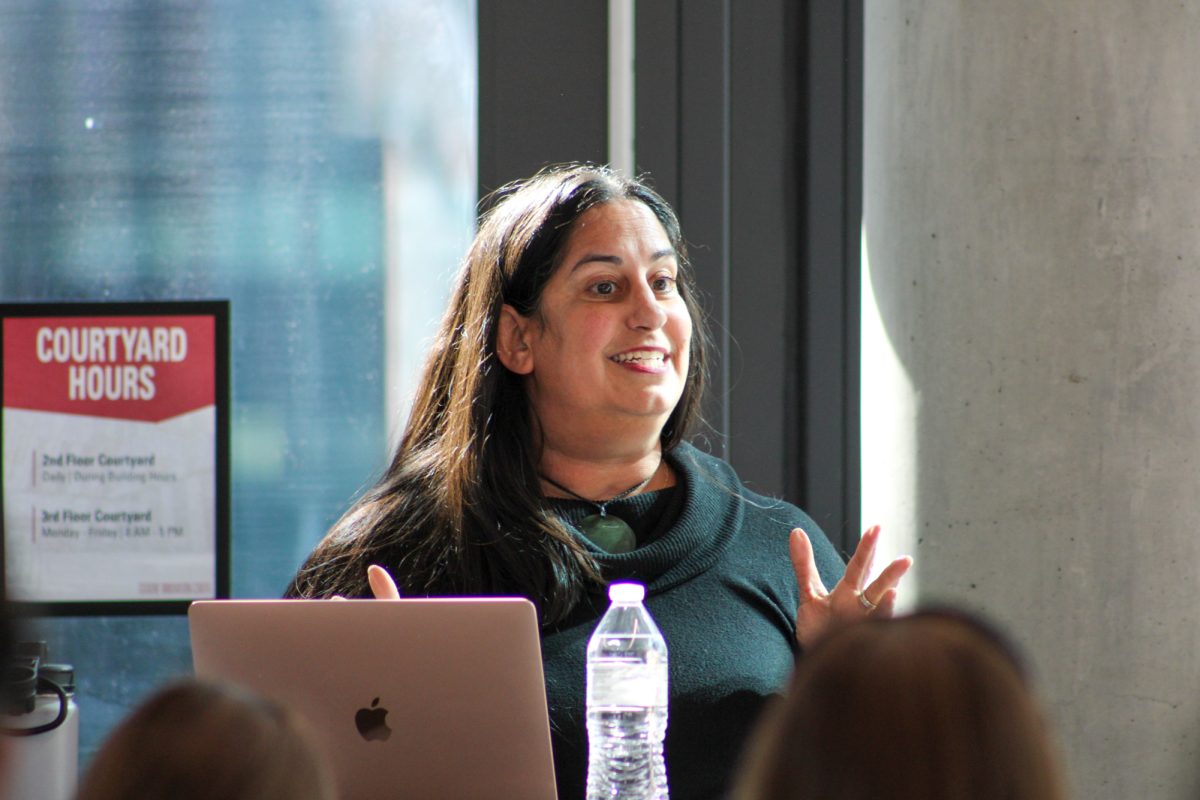When love is no more than a word
February 18, 1997
Valentine’s day is over for another year. Soon, the cards will be filed away, the roses will wilt, and the chocolates will be run off at the Rec.
But even though the day is over, does that mean the idea of true love is as well?
I don’t think that there has ever been a word as overused, and therefore cheapened, as the word “love.” As one man wrote in a recent issue of Marie Claire magazine, “My wife says ‘I love you’ so often, it’s like it’s more out of habit than something she really means. But, I guess if my biggest problem is that my wife tells me that she loves me too often, then I’m a pretty lucky guy.”
Is he really that lucky? Or, has his wife overused the phrase so much that she has forgotten what it really means to love her husband?
Everyone seems to have their own ideas of what “love” is. For some people, loving is confused with infatuation. Others take it to be the same as lust. Webster’s Dictionary defines love as “strong affection or liking for someone or something.” OK, but, then, how do you decide what “strong” is?
For someone who’s never been able to keep the same mate for more than a couple of months, you might say a six-month anniversary signified “strong affection.” Likewise, another person might take it to mean constantly spoiling their significant other with flowers and trinkets. In extreme cases, you could even say that a stalker shows a “very strong liking” for someone.
As you can see, the definition of love is by no means crystal-clear.
I feel that it is impossible for anyone to put a solid, all-encompassing definition on a feeling or emotion, especially one as strong as “love.” It is many things to many people, therefore a multitude of definitions should be expected.
I’d like to offer my own take on the issue.
“Love means never having to say you’re sorry.” We’ve all heard this phrase; many egoists have taken it literally, and used it as a cop-out to avoid humbling themselves to the point of actually admitting guilt. I’ll be the first to admit that I have hid behind its well-meaning definition a time or two myself. But if you really look at it, what does this phrase actually mean?
It means, “If you really love me, then you’ll forgive me before I have a chance to search my soul and discover why I did that heinous thing to you; therefore, there’s a good chance that I’ll do it again, seeing as how I got away with it this time, more or less.”
I have a better way of stating this: “Love means saying you’re sorry — not just as a reflex to avoid sleeping on the couch, but as a real, sincere attempt to improve your relationship.” Sure, it’s a few words longer, but hey, we’re talking about your innermost emotions here!
“Love knows no boundaries.” Whoever coined this phrase was probably the same guy who tried to knock off President Reagan just to impress Jodie Foster. Love should certainly have some limits. If you really loved someone, would you want to put them through the heartbreak and embarrassment of seeing you go to jail for a crime you committed to impress them? How about having to put your wife through bankruptcy because you went way above and beyond your means trying to make her happy? While these may be extreme cases, I think you get my drift.
Once again, I have a slightly more realistic rewording. How about, “Love knows no boundaries except your common sense and your mate’s feelings.” A little rough around the edges, but it works.
Like I said earlier, the phrase “I love you” is in danger of being cheapened to the point of becoming just another greeting, like “good morning” and the like. Everyone remembers the first time you said it to your mate, but has the feeling been as strong every time since then?
To say that you love someone is saying that you surrender your life and soul to them, that they are the most important thing in your life, and that you would sacrifice everything to make them smile. Do you feel that way every time you smile at your sweetie and utter those three little words?
A solely physical attraction to someone is not love. Nor is the opposite, just wanting someone for their mind and soul (and we all know how often THAT happens!) Rather, I believe that to truly love someone, you must feel for all aspects of their being, both their inner AND their outer beauty. Love is forgiving someone their faults, but not to the point that you don’t allow him or her to learn from their mistakes. Likewise, love means being (wo)man enough to swallow your pride when it was you that erred.
If you are still at a loss as to what “love” is, perhaps you will find enlightenment from the guru of feelings, Tim Allen. As he said in his book I’m Not Really Here:
“Of course, in our society, the word “love” is misused. People say, “I love pizza.” “I love bowling.” “I love my Toyota.” But what they really mean is “I really enjoy the sensory feedback, or pleasure, that these things bring me.”
“If desperate, I’ll sleep with my car or a pizza, but I draw the line at a bowling ball.”
Exactly.
Holly Benton is a sophomore in animal science from Early.






